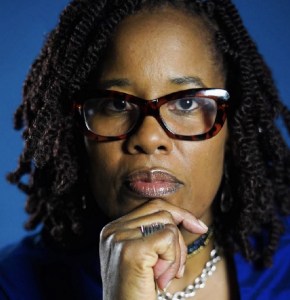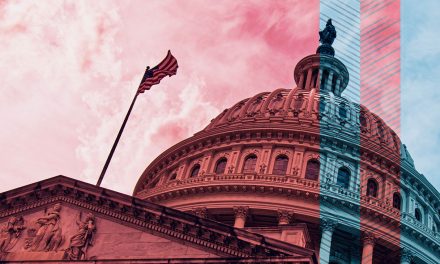By Karsonya Wise Whitehead
In 1644, as our nation was still in the very early stages of growth and development, the first documented moment of Black protest and resistance happened in America. Eleven enslaved men and women living in the Black community of New Amsterdam, the principal port city and capital, petitioned for and won their freedom and land. They had completed seventeen of their eighteen years of indentured servitude. They argued that they should be freed and not subject to the 1625 Virginia law that was beginning to be adopted in the colonies. This law distinguished between Black servitude and Black slavery and laid the groundwork for the harsher, more substantial slave laws that took effect beginning in 1657. Although that was the first documented racial protest, it was probably not the first one to happen and definitely not the last. The earliest account of a rebellion by enslaved men and women occurred in 1687 on a plantation in Virginia. Even though their plan was discovered before it happened, the idea that Black people were organizing back then to aggressively challenge the system is important to note.
There has always been multiple movements and ideas within the Black community around resistance. This means that there was protest happening in the streets and in the courtroom, and that there were some Black folks working for our community and working against our best collective interest. The understanding of all of these realities helps to frame the Black American experience. The struggle and desire to be free, to write our history, and to pursue our destiny have long been a part of that experience, and despite laws designed to restrict rights and freedoms, it has remained a central part of the story. The questions have never been about whether we should get involved in the struggle for civil rights—but rather when, where, and to what extent.
As America has continued to advance—from its early days as a young nation to its current role as a world power—Black people have both contributed to but have not always benefitted from the collective advancement. These struggles and protests did not just involve fighting for land and physical freedom; they also extended to fighting for the promises embedded within our foundational documents. Many of these questions, asked since the beginning of this American experiment, are still being asked today. On the surface, using a 21st-century lens, the questions about liberty and justice for all are simple but when one uses the long eye of history, these questions cut to the heart of who we are and who is a part of the American story. Black history is American history, and it is a truth that we are trying to hold within a system built on whiteness and sustained by white supremacy. We hold these truths to be self-evident and have been willing to fight and die for them. “How can you,” my father once asked, “face the truth of America and not be so angry that you want to burn it all down?” My mother would sigh and add, “How do you burn down the house you live in?” This is the American experience, for many Black people—trying to burn down a house and save it at the same time.
This tension has led to frequent movements for civil rights: it happened in the courtroom in 1849, with the Roberts v. City of Boston case, as lawyers unsuccessfully argued that legalized segregation psychologically damaged black students, and on the streetcars in 1867 when Caroline Le Count, a freeborn educated woman, engaged in civil disobedience to force the city to enforce the law that integrated public transportation. It happened in 1851 when Sojourner Truth, at the Akron Convention, challenged a committee of men to think about the rights of women and again one year later when Frederick Douglass challenged Americans to think about the significance of the fourth of July in the lives and experiences of African Americans. The early movement for civil rights, from the cotton fields in the South to the cotton shirts in the North, was extremely active and provided the roots upon which the modern Civil Rights Movement was built. We have learned since then that the battle for civil rights is not just about changing laws, practices, policies, and procedures, but it is about changing the hearts and minds of racist white folks and complicit Black folks. We are not just fighting those outside of our community but those within our communities as well.
The Black History Month Theme for 2023 is Black Resistance, which is an essential part of who we are and a necessary tool that helps us to reconcile what it means to both live in the house and burn it down. Black people, I was always taught, are the heart and soul of this nation. We are the canaries in the minefield who cry out when this nation strays too far from who it is supposed to be for all of us. We believe in the idea of the American dream, just not the reality. We too sing America; we just want to do it with our own voices and with our own song.
Karsonya Wise Whitehead (todaywithdrkaye@gmail.com; Twitter: @kayewhitehead) is the Founding Director of The Karson Institute for Race, Peace, & Social Justice at Loyola University Maryland and the 2021 Edward R. Murrow Regional Award- winning radio host of “Today With Dr. Kaye” on WEAA 88.9 FM. She is the author of the forthcoming book, “my mother’s tongue: dispatches from inside Baltimore’s Black Butterfly.” Portions of this essay are from her chapter, Historical Context of the Culturally Responsive Teaching Framework, which will be featured in the forthcoming book, “Legacy of Action: How Dr. Geneva Gay Transformed Teaching.”
The opinions on this page are those of the writers and not necessarily those of the AFRO. Send letters to The Afro-American • 233 E. Redwood Street Suite 600G
Baltimore, MD 21202 or fax to 1-877-570-9297 or e-mail to editor@afro.com
Help us Continue to tell OUR Story and join the AFRO family as a member –subscribers are now members! Join here!
The post Black History Month 2023: The Power of Black Resistance appeared first on AFRO American Newspapers .










